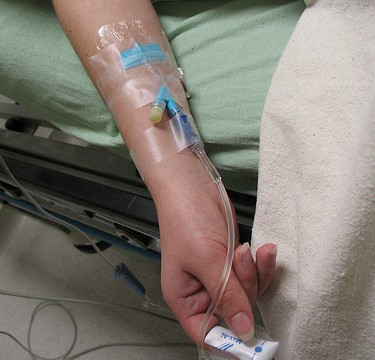Intravenous Fluids Linked to Newborn Weight Loss
A new study published in the International Breastfeeding Journal is suggesting that the phenomenon of newborn weight loss may actually be associated with the intravenous fluids that mom is given during labor and delivery. It is commonly accepted that a newborn will lose up to 5-7% of their body weight in the days following delivery, all of which will be regained in the subsequent weeks. Some breastfed infants lose even more, up to 10% of their birth weight.

In women who choose to breastfeed, the weight of the baby is often used to gauge whether baby is getting enough milk and is developing normally. Babies with excessive weight loss or poor weight gain after delivery are often supplemented with formula and in many cases, discouraged from exclusively breastfeeding.
This study is raising some questions, however, about the validity of this practice and whether excess newborn weight loss is just that. It also backs up previous studies published in Pediatrics in 2010.
Women in Labor Given IV Fluids
Women in labor and delivery are often given intravenous fluids to protect them from dehydration and low blood pressure. This is often caused by the medications in the epidural and the fact that women are discouraged from eating and drinking during their labor. Those extra fluids, besides circulating in mom’s bloodstream, enter the baby’s blood circulation through the placenta. Baby becomes overhydrated, causing birth weight to be higher. It also causes baby to increase the amount of urine and stool produced in an attempt to get rid of the excess water after delivery. The study suggests that the there is a direct correlation between the amount of IV fluids mom receives during labor, how much weight baby loses in the first 60 hours after birth, and the amount of urine and stool produced by baby in the first 24 hours (Noel-Weiss, Woodend, Peterson, Gibb, & Groll, 2011).